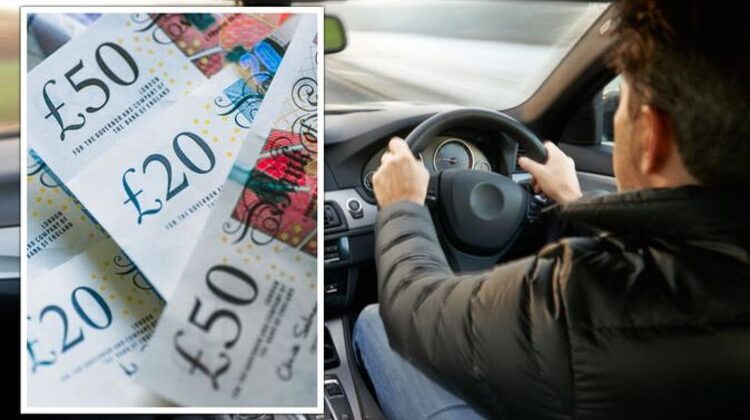Why motorists could pay more in car tax in 2022
We use your sign-up to provide content in ways you’ve consented to and to improve our understanding of you. This may include adverts from us and 3rd parties based on our understanding. You can unsubscribe at any time. More info
From April 1, 2022, vehicle excise duty (VED) will be rising in price for drivers in line with inflation measured by the Retail Prices Index (RPI) – or inflation. The price hike to car tax will be applied to both petrol and diesel vehicles, with electric cars being exempt from paying VED charges.
Car tax is measured by how environmentally friendly a car is and the level of CO2 emissions which are released through the exhaust pipe.
Kevin Pratt, car insurance expert at Forbes Advisor, warned drivers of the consequences they face if they don’t tax their vehicles.
Speaking to Express.co.uk, he said: “Vehicle Excise Duty – or car tax, to you and me – is just one more household expense that’s on the way up, with an inflation-linked hike from April helping fuel the UK’s deepening cost of living crisis.
“Drivers are already looking at pump prices in despair, but as one wag put it – at the height of lockdown, you weren’t allowed to travel more than five miles from your home. Now, you simply can’t afford to.


“Only cars that have zero or very low CO2 emissions will escape the increase.
“But electric and hybrid cars remain a small minority of the UK’s vehicle fleet, meaning millions of those renewing their car tax in 2022/23 will feel a sharper sting when it comes time to pay.”
If a vehicle does not produce any CO2 emissions, the VED rate will remain at zero and they will not be charged.
For all polluting vehicles, including hybrids, which were registered on or after April 2017, the standard rate will be increasing by £10 from £155 to £165.
DON’T MISS
Grants extended as drivers could save £16,000 on an electric vehicle [INSIGHT]
Driver uses ‘concrete blocks inside trollies’ to reserve parking space [SHOCKING]
DVLA urges drivers to tax their classic cars even if they are exempt [URGENT]
Any vehicles registered after April 2017 which produce more than 76g of CO2 emissions per kilometre will see their first year rate also increase.
These increases could be as small as £5 or as large as £120 for the most polluting cars on the road.
VED bands for cars registered on or after March 2001 will also be changing.
For cars in Band D and below, their standard rate will increase between £5 and £30.
 Book here
Book here
Book your MOT with the UK’s #1 MOT tester – just click the link to book online.

Source: Read Full Article
